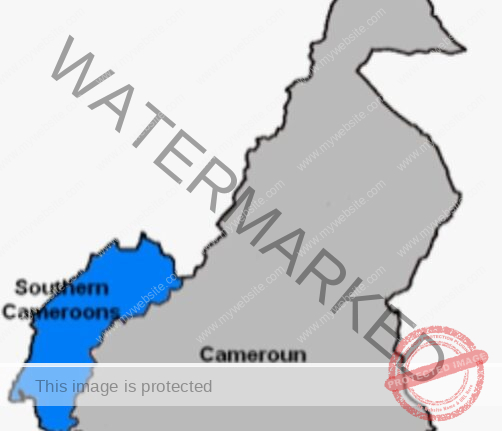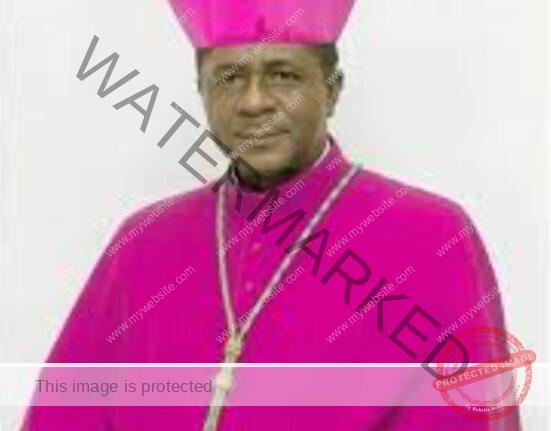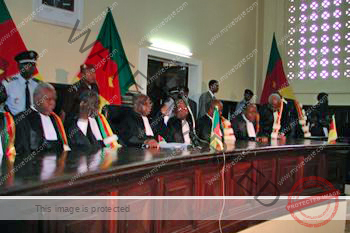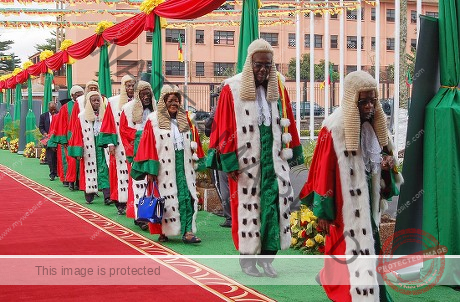By the office of the President.
Lord Tony Benn once said, “Always defend the right to decide. Because if you cannot decide, you cannot govern. And if you cannot govern, you are not free.” These words speak not only to political theory but to lived experience. They reflect the heart of the Ambazonian people’s journey—a people denied their right to decide, who are now rising to reclaim it.
For over six decades, the people of Ambazonia, formerly known as the British Southern Cameroons, have lived under a political arrangement they neither negotiated nor ratified. In 1961, the people of Southern Cameroons voted in a UN-supervised plebiscite not to join Nigeria, but to pursue independence by entering into union with the Republic of Cameroon. Many believed this would be a union of equals—an opportunity to build a stable, bilingual, federal state where both parties could thrive. That hope was genuine. But what followed was not union. It was annexation.
There was no treaty of union signed between the two territories. No joint constitutional framework was ratified. No Act of Union was ever deposited at the United Nations. The so-called Foumban Conference, held in July 1961, was presented as a constitutional discussion, but in truth it was a one-sided affair. Southern Cameroonian leaders were presented with a draft constitution they did not negotiate and which La République unilaterally adopted. This breach of good faith laid the foundation for a relationship defined not by partnership but by control.
Even today, the recent Foumban Declaration of August 2, 2025, issued by a mix of regime figures and opposition voices, attempts to repackage that flawed history. While it calls for unity and democratic renewal, it remains silent on the core injustice—the fact that the people of Ambazonia were never given the right to decide their own future. The declaration invokes the symbolism of Foumban, but omits the pain that followed it. It proposes national dialogue, but fails to address the long-standing question of decolonization. It speaks of reconciliation, yet forgets the graves of those who died for asking to be free.
The reality on the ground is stark. Since 2016, peaceful protests in Ambazonia were met with live bullets. Teachers and lawyers asking for basic protections of their systems were brutalized. Entire communities—Bali, Muyuka, Kumbo, Mamfe—have seen villages burned, families displaced, and livelihoods destroyed. Over 60,000 lives have been lost. More than one million people are displaced. Hundreds of political prisoners remain in detention without trial. These are not just numbers—they are a daily reminder that the so-called union was built on force, not consent.
We acknowledge that the people of La République du Cameroun are also suffering under a system that has long suppressed dissent, violated rights, and corrupted hope. The recent exclusion of opposition figures like Maurice Kamto from meaningful electoral participation highlights the deep crisis facing their nation. We recognize their pain and respect their efforts to bring change. But our struggle is not the same. Ambazonia is not fighting to reform the state of Cameroon. Ambazonia is seeking to exit it—peacefully, legally, and permanently.
This is not a campaign of rebellion. It is a movement for decolonization. International law, including UN General Assembly Resolutions 1514 and 1541, affirms that the people of former trust territories have the right to self-determination through informed, democratic choice. That choice was never granted to the people of Southern Cameroons. There was no referendum on union. There is no legal instrument binding the two countries together. Therefore, the right of the Ambazonian people to determine their own future remains intact.
President Dr. Samuel Ikome Sako has consistently grounded Ambazonia’s pursuit of independence on this legal foundation. Under his leadership, the Interim Government has advanced diplomatic engagement, humanitarian relief, and institutional capacity-building. The President has emphasized that Ambazonia’s future must be built on self-reliance, not dependency. We are restoring our education system, reviving local governance, building international partnerships, and preparing to manage our own economy based on transparency and merit.
Ambazonia is rich in natural resources. Our people are industrious. From oil in the Rio del Rey to fertile farmland in Ndop and the Menchum hydropower basin, we possess the tools to build a thriving, independent nation. But true development can only begin when we are free to make decisions for ourselves—about our taxes, our schools, our roads, our ports, and our laws. That is what it means to be sovereign.
We recognize that not all Ambazonians share the same political views or belong to the same organizations. That diversity is natural in any society. But there is widespread, irreversible consensus on one point: we cannot go back to the system that caused our suffering. Whether in the diaspora, in the refugee camps, or on the ground in our counties, the overwhelming cry is for freedom through independence.
We also recognize the role of the international community. We do not ask for sympathy. We ask for principled support. We invite responsible governments, development agencies, and international observers to walk with us—not to dictate outcomes, but to uphold the right of all peoples to freely determine their destiny.
As Lord Tony Benn reminded the world, when people lose the right to decide, they lose the essence of freedom. Ambazonia is not looking to be absorbed, managed, or appeased. We are seeking to be heard, recognized, and respected.
We are not asking to be made part of a broken state.
We are affirming that we are already a people—with a history, a territory, and a right to choose.
That right is not negotiable. It is not violent. It is not unreasonable.
It is simply the right to decide.
And we will always defend it.
Office of the President




















Leave feedback about this